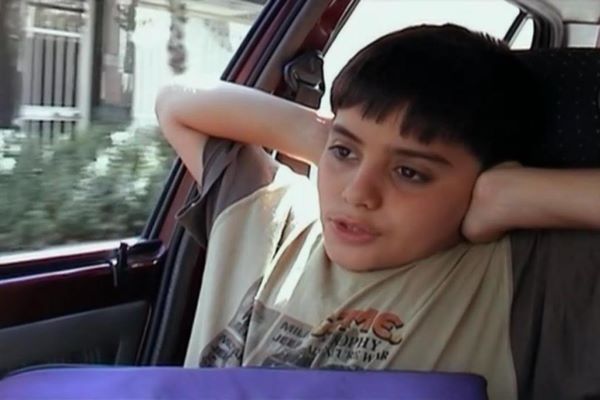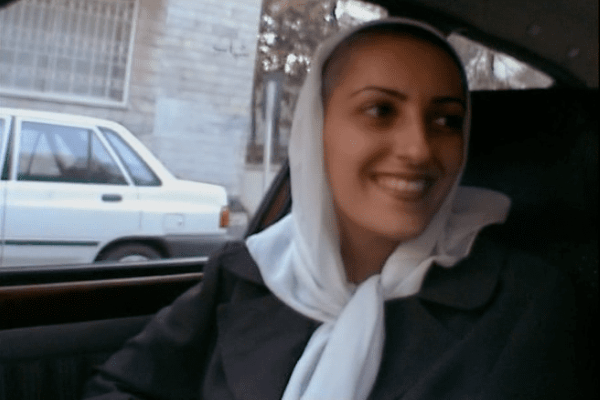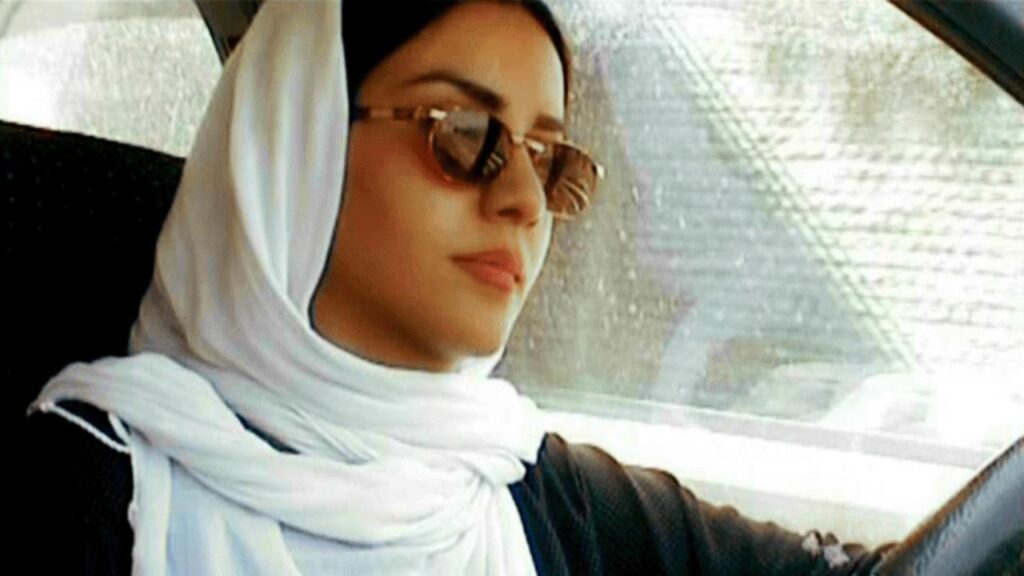Abbas Kiarostami’s Ten portrays the indescribable plight and struggle of Iranian women in modern Iran. Kiarostami’s films always deal with serious issues like life, death, afterlife, spirituality, suicide, etc., and represent the lives and culture of ordinary Iranians. His films are replete with the enormous natural beauty of Rural Iran. However, in this film, his heart goes out to countless Iranian women and their hardships. He dares the Iranian government and clerics and stands strongly against the miseries of the Iranian women. Ten highlights serious issues like divorce, prostitution, break-up.
As the name suggests, Ten is divided into ten parts. In each part, the same female driver (Mania Akbari) engages in a conversation with different passengers inside her car while driving through the streets of Tehran. Her passengers are her son, her sister, a religious woman, a prostitute, and an unmarried woman. In the 1st part, the driver engages in a conversation with her adolescent son (Amin Maher) while driving him to a pool. The conversation reveals that the boy has not been able to accept the divorce of his parents and hates his mother referring to her as a bad mother and selfish woman. He charges his mother for falsely labeling his father a drug addict. She justifies that the condition of the Iranian women is so pathetic that even an arbitrary accusation is required for the divorce to be granted. The boy is not satisfied with the answer and leaves the car midway.

In the 2nd part of the film, the driver drives to a bakery to buy a birthday cake for her husband Mortaza with her sister whose son behaves the same way as the driver’s son. She advises the driver to keep her son with his father as he is growing up. In the 3rd part of the film, the driver picks up an old religious woman after her prayer in a mausoleum. The old woman tells her that she lost her husband and twelve-year-old son, and she prays for them three times a day there. She has sold all her possessions to help underprivileged people. In the 4th part of Ten, the driver takes a prostitute into her car. The prostitute says that women are foolish enough as they believe and cling to men. She also says that marriage is nothing but merely a transaction between a man and a woman, in which a man uses a woman in exchange for bearing her expenses. In the 5th part of the film, the driver picks up an unmarried woman who has just come out of a mausoleum after her prayer. She informs the driver that she has recently turned into a believer of God as she wants to marry her lover.
In the 6th part of the film, the driver picks up her son from her ex-husband and drives him to his grandmother’s house. She takes permission from her ex-husband to keep her son overnight. He reveals that his father watches porn alone at night. In the 7th part of Ten, the driver picks up her sister again. She is distraught as her husband has left her after seven years of marriage. The driver consoles her and advises her not to cling to her husband. In the 8th part of the film, the driver picks up her son again. The two discuss his father’s remarriage. The boy says that his stepmother will be better than her and cook meals every day. In the 9th part of the film, the unmarried woman from the 5th part appears again. She is distraught as her boyfriend has left her for another woman. The driver is surprised to see that the woman has got her head shaved. In the 10th part of the film, the driver picks up her son from his father and drives him to his grandmother’s house.

Abbas Kiarostami’s Ten mostly focuses on the plight of women in modern Iran. When a particular section of society suffers, true artists can not keep quiet. They dare the government and revolt through their artistic medium. They always stand beside the oppressed and convey their sufferings to the wider world. Kiarostami is no exception. As a true artist and filmmaker, he raises his voice against the oppression and sufferings of countless modern Iranian women through his film Ten.
Ten portrays the oppressive patriarchal society in modern Iran. A woman can not get a divorce on a mutual basis. She needs to lie and accuse her husband falsely as a drug addict for her divorce to be granted. They are deprived of basic human rights. Even their kids are modeled in such a way that they also end up supporting this patriarchal system. The driver’s son hates her and accuses her of being selfish. The boy is so agitated that he leaves the car midway and even does not want to stay with his mother. The home environment has made him believe that his mother is not a good mother. Nothing in this world can be as painful as a mother watching her son end up hating her.
Ten also shows the vulnerability of Iranian women. The driver’s sister is heartbroken and cries incessantly when her husband leaves her after seven years of marriage. When the lover of the unmarried woman rejects her, her eyes are filled with water and she even gets her head shaved. These incidents clearly show that Iranian women are very serious about their beloved men. They utterly value their relationships and are devastated when they are rejected and cheated. They want to stick to their partners under any circumstances. The women even pray in mausoleums to patch up their broken relationships. The rejections and separations mostly come from men. The women think about remarriage when they are so much tortured that they can not continue their relationships anymore.
In Ten, the driver once picks up a prostitute as a passenger. The prostitute terms the marriage as merely a transaction in which a man enjoys a woman and the woman gets her necessities and safety. She says that women are foolish enough to cling to men. She has multiple clients who visit her on a regular basis instead of having wives. The most important point is that she is not wrong and her brutally honest opinion uncovers the real face of Iranian patriarchal society. Truth always gets propagated. When the driver’s sister cries incessantly, she consoles her uttering the same lines spoken to her by the prostitute. Her words echo the helplessness of modern Iranian women. After getting off the car, she gets into another car with another client. The tragedy continues.
Ten is not an anti-Islam film at all. Kiarostami never takes a stand against Islam. As an artist, he only raises questions against the injustices of Iranian society. In the film, the old religious woman prays three times a day in a mausoleum. She has sold everything she had for underprivileged people. Kiarostami shows the generosity preached by the great religion of Islam. The unmarried woman has started visiting a mausoleum after she lost her lover. Kiarostami does not object, rather highlights the tremendous faith the Iranian women have in the great religion of Islam and Allah. Even the old woman requests the driver multiple times to visit the mausoleum and offers her prayer to Allah. Beloved God runs this world and we call him almighty. These are humans who do not follow the basic virtues and make this world suffocating.
Ten was shot by two stationary mounted digital cameras in the car. Kiarostami was not present in the car. He gave directions to the actors and they drove across the streets of Tehran. Kiarostami experimented and proved that a world-class film can be made even without the presence of the director. He felt that the absence of the director enhanced the quality of the performances as the actors could deliver their performances freely without the continuous pressure from the director. Like many of his films, Kiarostami used mostly non-professional actors in this film as well. Mania Akbari delivered a sensitive and brilliant performance. Amin Maher who is the real-life son of Mania Akbari was natural and lively throughout the film. Ten has a shape of a docufiction as the film looks like a documentary but is based on a fictional story. Kiarostami used the visual distancing method, his signature style, in this film as well, where the viewers can hear the audio but can not see the characters on the screen. Like his multiple films, the conversations in this film too unfold inside a car. The film was nominated for the prestigious Palme d’Or at the 2002 Cannes Film Festival.
